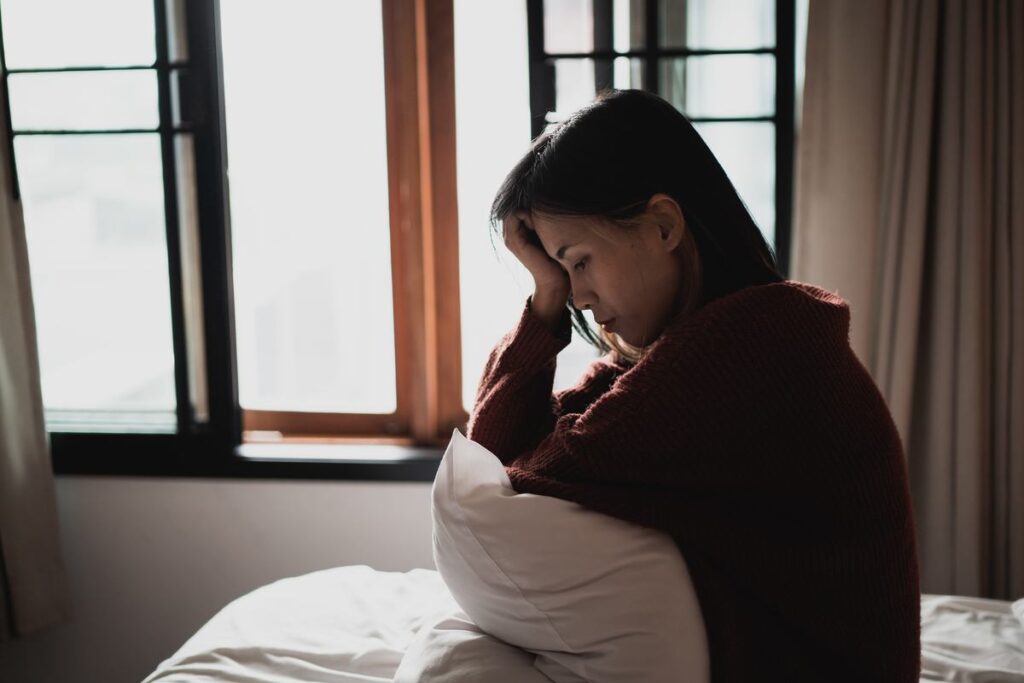
Trauma is the result of an occurrence that causes physical or emotional harm. It casts a dark shadow that extends far beyond the initial event and permeates several aspects of a person’s life, affecting their thoughts, emotions, and behaviors.
One such aspect is sleep, a vital part of our well-being. Because of trauma’s distressing nature, it’s no surprise that those who have experienced it would struggle with sleep. Understanding the intricate relationship between trauma and sleep disturbances can help you make informed decisions about how to address your trauma and cope with its symptoms so you can get some much-needed rest.
Understanding Trauma and Its Effects
Trauma, in its essence, is an experience that overwhelms an individual’s capacity to cope, leaving lasting imprints on both body and mind.
In perceived moments of danger, the body’s primal responses–fight, flight, or freeze–kick into overdrive, flooding the system with stress hormones like cortisol and adrenaline.
As a result of trauma, the mind grapples with psychological responses, such as intrusive thoughts, hypervigilance, and dissociation.
The effects of trauma look different for everyone, depending on what they have endured. People from all walks of life can experience symptoms of trauma that may last for brief or extended periods.
The Relationship Between Trauma and Sleep
Understandably, trauma’s effects extend into the realm of sleep.
When the delicate balance of neurotransmitters and brain regions responsible for regulating sleep is disrupted, a host of sleep disturbances can occur. Hormonal changes also contribute to sleep troubles.
Nightmares, insomnia, and night terrors may arise as an unwelcome effect of trauma, robbing survivors of well-deserved rest. During these episodes, individuals may replay or reflect on their experiences, causing them to feel fearful or unsettled. These disturbances not only exacerbate existing trauma symptoms but also impair daily functioning.
Lack of proper sleep can influence several other aspects of a person’s life, including their social interactions, mental health, and performance at work or with everyday tasks.
At-Home Coping Strategies
Although trauma can heavily interfere with sleep, there are pathways to reclaiming restful nights. These simple but effective strategies can make a world of difference for trauma survivors battling sleep disturbances:
Maintain a consistent sleep schedule
Establishing a regular sleep-wake cycle helps regulate the body’s internal clock, signaling when it’s time to rest and when it’s time to awaken, promoting better sleep quality over time.
Create a safe and comfortable sleep environment
Designate your bedroom as a sanctuary free from reminders of trauma. Ensure it’s conducive to relaxation and peace, with comfortable bedding, optimal temperature, and minimal noise or light (unless you prefer them).
Develop a relaxing bedtime routine that helps you unwind
Engage in calming activities before bed, such as reading, stretching, knitting, or deep breathing, signaling to your body that it’s time to transition into sleep mode.
Modify your diet
Avoid stimulating substances like caffeine or heavy meals close to bedtime. Instead, opt for light snacks and beverages like herbal tea or a small serving of nuts or fruit to promote digestion and relaxation.
Refrain from forcing sleep
Rather than pressuring yourself to fall asleep, adopt a mindset of acceptance and patience, knowing that sleep will come naturally when your body and mind are ready. Engage in restful activities if unable to sleep, avoiding screens and bright lights to prevent further stimulation.
Evidence-Based Treatment Approaches
In addition to these at-home strategies, evidence-based treatment approaches can offer relief to trauma survivors struggling with sleep.
Cognitive behavioral therapy for insomnia (CBT-I)
Cognitive behavioral therapy for insomnia (CBT-I) stands as a beacon of hope, equipping individuals with the tools to reframe their relationship with sleep. With the help of a trained professional, clients undergoing CBT-I explore their thoughts and feelings about sleep with the goal of replacing inaccurate or unhelpful ones with positive ones. Participants in CBT-I often see significant improvement in the quality of their sleep within a matter of weeks.
Trauma-focused therapies
Additionally, trauma-focused therapies delve into the root causes of sleep disturbances, addressing them at their core. Unlike traditional therapy, trauma-focused therapy acknowledges the profound impact trauma has on a person’s entire well-being. Clients typically engage in several techniques that help them soothe their nervous systems when they are triggered.
Conclusion
In the midst of trauma recovery, sleep is a critical need that provides solace and rejuvenation to exhausted individuals. Understanding the connection between trauma and sleep disturbances paves the way for healing.
If you or a loved one is navigating trauma recovery and experiencing sleep troubles as a result, Alvarado Parkway Institute can help. Contact us today to learn more about our facility. We offer a wide range of services, including inpatient, partial-hospitalization, and outpatient programs. Together, we can help free your mind from heavy thoughts and get your sleep schedule back on track.